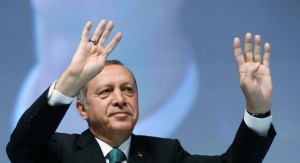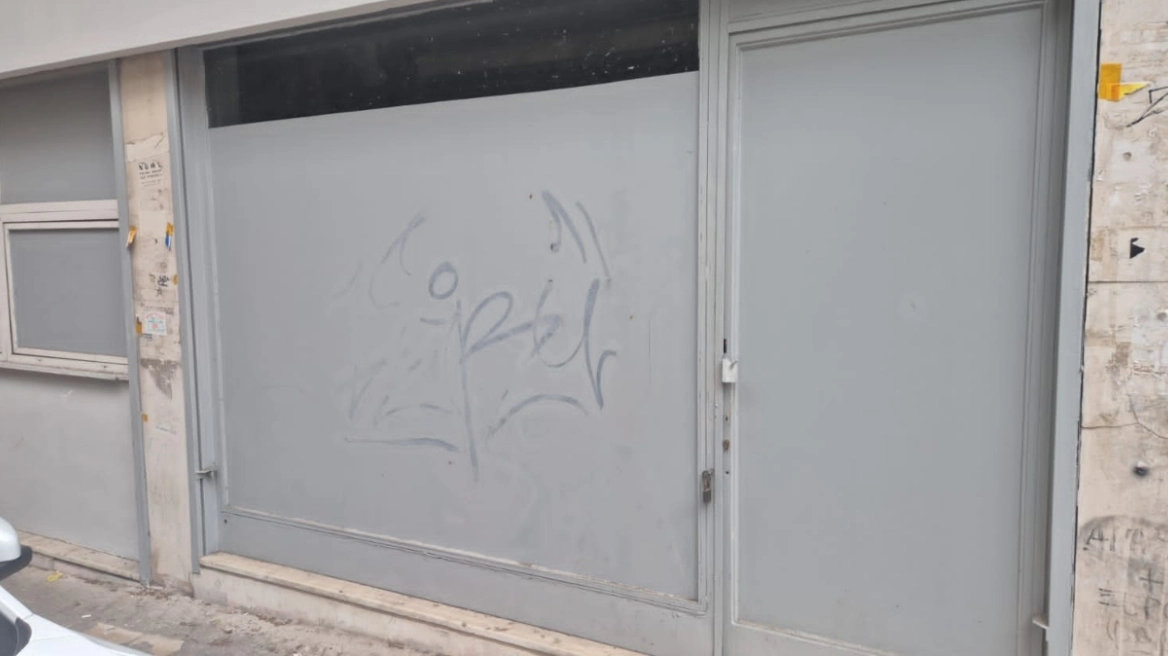Turkey’s President Recep Tayyip Erdogan on Sunday took back control of the ruling party he founded, a step that gives the nation’s most powerful man additional authority to appoint loyalists to parliament lists and party posts across the nation.
Just a month after a vote approved transferring Turkey’s center of political power to the presidency from parliament, the AK Party’s leadership and tens of thousands of party faithful convened to anoint Erdogan at an extraordinary congress in Ankara. The referendum’s result allowed the president, until then constitutionally an impartial head of state, to be a member or leader of a political party.
Erdogan, 63, who has already defanged Turkey’s once-influential military, neutralized the opposition and subordinated the press, will now wipe out any vestiges of dissent within the ruling party. A new set of party regulations includes stiffer penalties for breaking discipline, and expulsion for anyone who acts in a way perceived as serving the purposes of another party, Hurriyet newspaper reported.
The congress took place under extraordinary security measures, amid a state of emergency that’s been in place since the aftermath of a July 15 coup attempt. Some 60,000 people were brought into Ankara by bus from outside the city, Hurriyet reported. By 9:30 a.m., security forces could be seen using pepper spray against masses of supporters who had congregated outside the arena and were fighting to get closer.
(Neo-Ottoman dreams at the AKP’s congress. Guy on the right is dressed like the late Sultan Abdulhamid…)
Since 2001
Erdogan founded the AK Party in 2001 as a conservative, free market-oriented, Islam-inspired political movement that was an alternative to the long-time domination of rigid secularists — the successors of modern Turkey’s founder, Mustafa Kemal Ataturk. The AK Party swept to power in an election the next year, winning almost two-thirds of the seats in parliament with just 34 percent of the vote.
Since then, the party has lost its commanding majority in the legislature just once, in June 2015: the elections were repeated five months later amid an upsurge in violence and an inability of opposition parties to form a coalition government. Leaders of the main pro-Kurdish party, whose boost in support was instrumental in stripping the AK Party of its ability to rule alone after that election, were later jailed on terrorism charges.
Emergency Rule
In a speech to business group Tusiad earlier this week, Erdogan said that Turkey needed to keep its rate of economic growth at 6 percent or higher, which is more than double the average forecast of economists in Bloomberg surveys for this year. He also said that Turkey would keep the state of emergency in place as long as needed.
In a nearly two-hour speech at the congress, Erdogan highlighted 15 years of economic achievements and attributed any democratic shortcomings to threats from terrorist organizations. He again rejected calls for the removal of the state of emergency, known as Ohal in Turkish, which allows him to rule by decree.
“It’s not going to be lifted,” he said. “Are your factories not working? Are the schools closed? Why should the Ohal be lifted?”
Some 150,000 people have been swept up in purges since the coup attempt, including academics, journalists and opposition politicians who’ve been jailed for months without trial. Last week, arrest warrants were issued for four people, including the owner, at one of the nation’s last remaining opposition newspapers, Sozcu, which has a vehemently secularist-nationalist bent. They were accused of working with the Islamic group Erdogan says was behind the failed coup, the movement of exiled cleric Fethullah Gulen.
Cabinet Revision
Changes made to the party’s central board, the MKYK, included adding pro-government businessman Ethem Sancak, whose group of companies includes defense interests and media outlets, according to Aksam newspaper. Ministers Veysi Kaynak and Mehmet Muezzinoglu were dropped, along with Saban Disli, a party coordinator for economic affairs, and Yasin Aktay, the party spokesman.
Changes to the cabinet could be made within a couple of days, Haberturk TV cited AK Party Deputy Bulent Turan as saying. The replacement of 19 of 50 MKYK members signals that 20 to 30 percent of the cabinet could also be replaced, said Mustafa Elitas, another deputy.
Erdogan will present his return to the party as the start of a new era for Turkey, but the country’s economic and political outlook has deteriorated, according to Wolfango Piccoli, co-founder of Teneo Intelligence in London. The change may usher in a cabinet reshuffle in which appointees are named based on loyalties rather than talent, he said.
“Erdogan has achieved a long-held dream of establishing a presidential system where the president faces little, if any, checks and balances on his power,” Piccoli wrote in a report on Turkey. “The AKP has gradually become Erdogan’s personal vehicle while losing its way and vision.”
Ask me anything
Explore related questions






